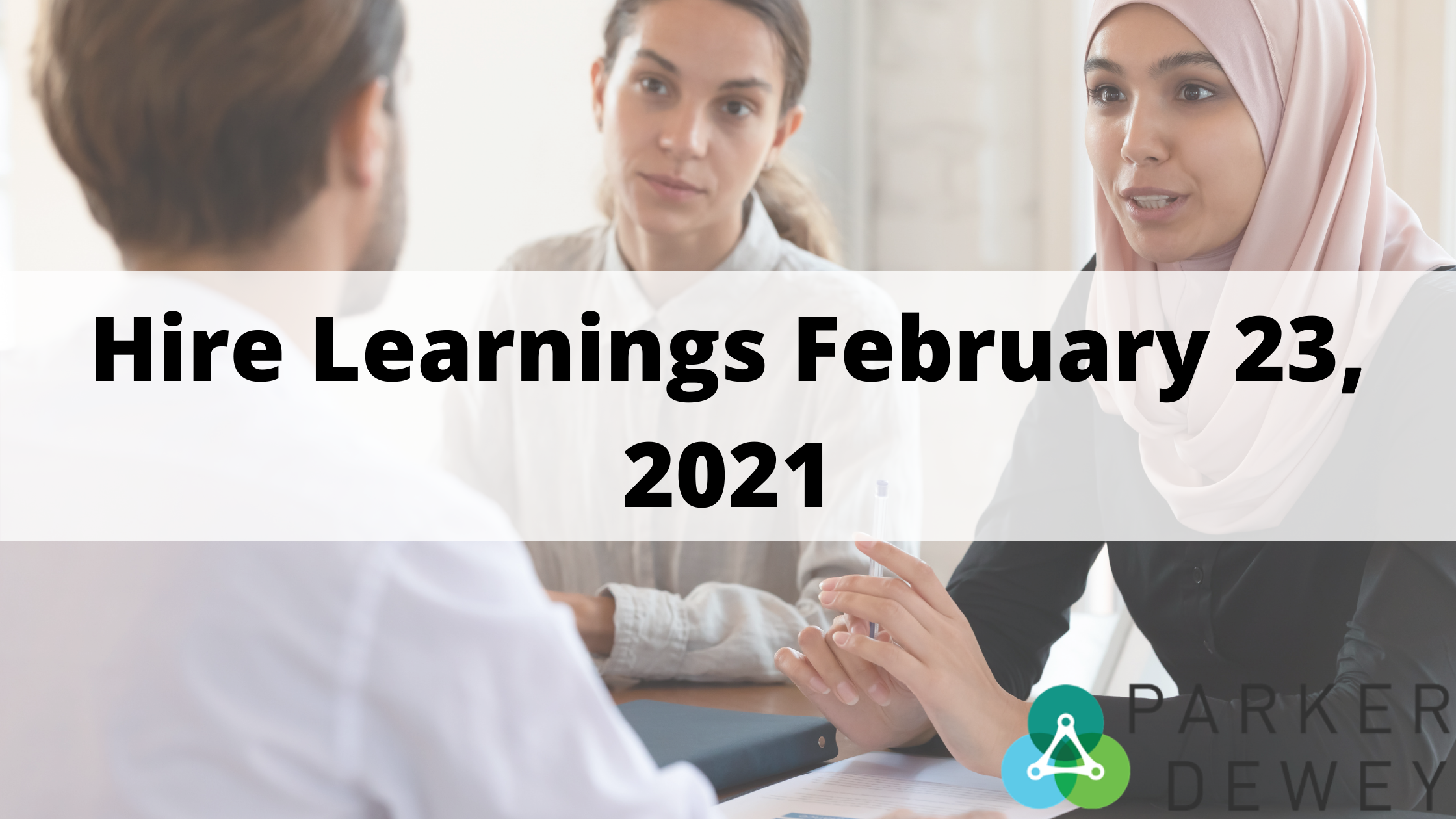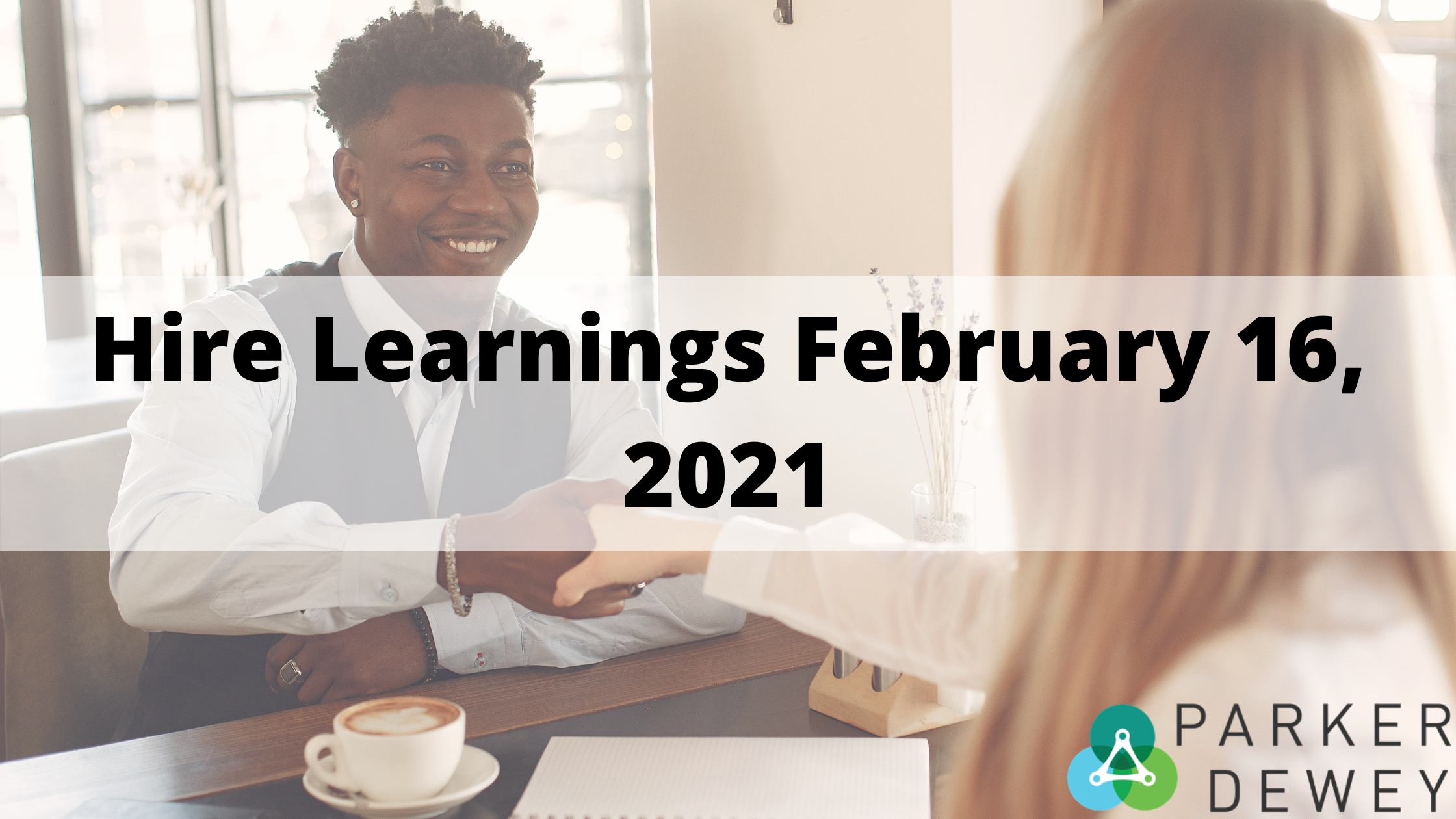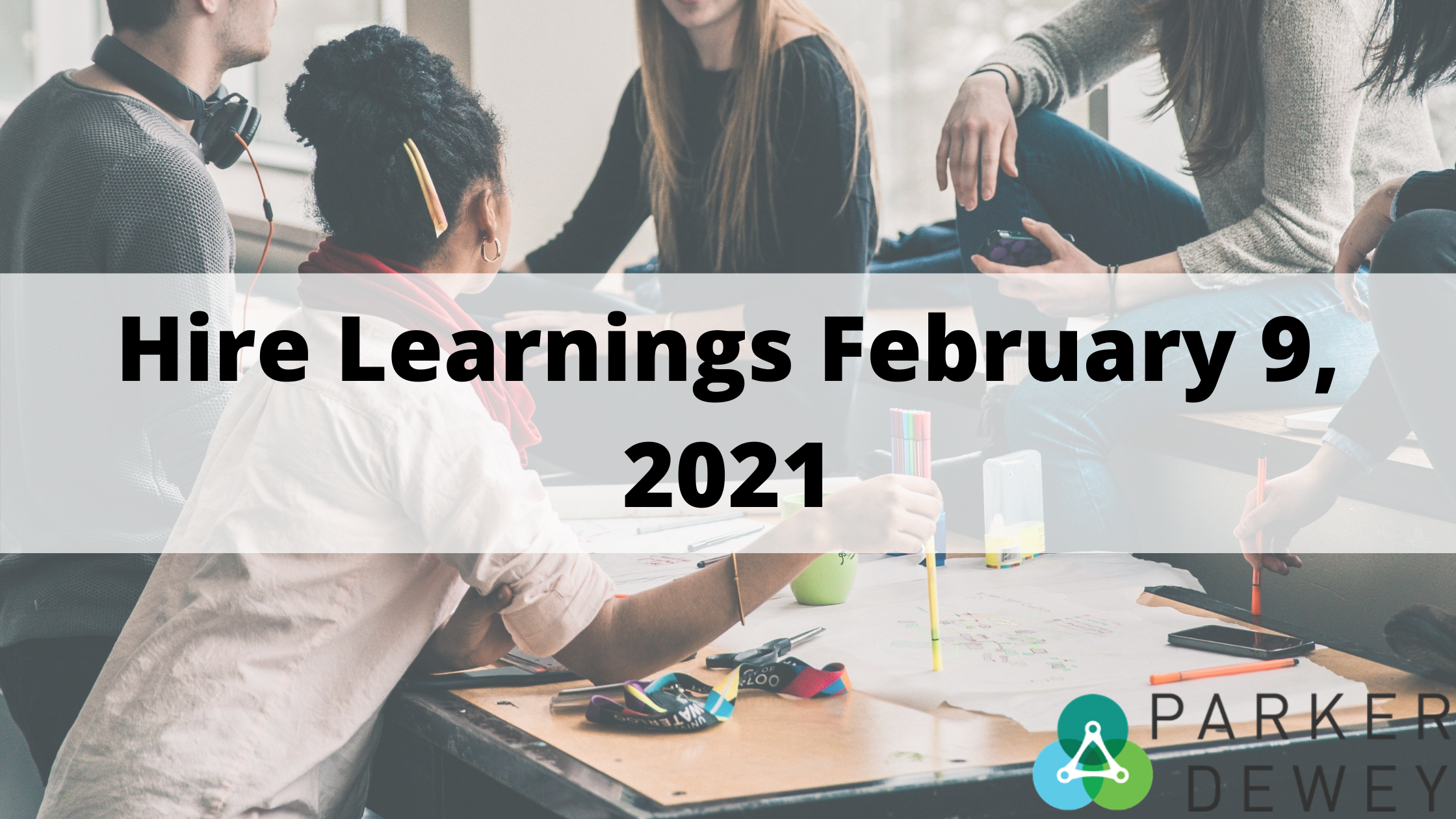
A focus on skills-based hiring
As the year draws to an end, I’ve been seeing a focus on "skills-based hiring." But to be clear, this does not suggest college is unnecessary for most professional jobs. Rather, this highlights that companies need to look beyond school, major, GPA, and traditional "recruitment and assessment strategies to better recognize and evaluate skills of all job seekers." As Parker Dewey research has shown, the best way to do that is through Experiential Recruiting.
As companies recognize the importance of assessing skills in other ways, you can leverage Experiential Recruiting with tools such as Micro-Internships to enhance your hiring, diversity, conversion, and retention outcomes. And with the unusual recruiting environment driven by COVID, there is no better time to do so.
Students are hungry to look beyond the career fairs, info sessions, emails, and interviews - show them how to authentically engage with you.
Learn more about how Micro-Internships are easy to leverage.
Jeffrey Moss, Founder and CEO
Articles of the Week
How to address the skills gap between higher ed and employers - University Business
How Experiential Learning Can Improve Educational and Workforce Equity - EdSurge
The Class of 2020 Looks for Work - The Wall Street Journal
How to address the skills gap between higher ed and employers - University Business
“While one could argue that students entering pre-professional programs for medicine, law, nursing and engineering have long had significant conversations about the necessary and required skills for entering those fields, why have we not enacted this same level of scrutiny for any potential occupation and a program’s ability to provide the necessary skills desired by employers?”
The skills gap debate still has a few missing pieces, much of which is driven by the lack of appreciation for Core Skills like communication, problem-solving, and adaptability and a belief that “academic scholarship” is mutually exclusive with “career readiness.” The willingness to collaborate with critical technology-driven insights and cross-departmental discussions is necessary for higher education and institutions to move the needle forward.
Related Reading: Micro-Internships in Cincinnati: How Your Community Can Attract and Retain College Students
How Experiential Learning Can Improve Educational and Workforce Equity - EdSurge
“The limited but growing body of research on experiential learning suggests it can deliver superior educational outcomes by facilitating practice and feedback, increasing student motivation and helping students achieve higher rates of employment and wages.”
Experiential learning has gained momentum worldwide in the past couple of years, and although many employers and students are seeing its benefits, there are still ways it can be used to improve workforce equity within minority communities.
Related reading: Student Voice: How Companies Can Benefit Through Micro-Internships
The Class of 2020 Looks for Work - The Wall Street Journal
“While one could argue that students entering pre-professional programs for medicine, law, nursing and engineering have long had significant conversations about the necessary and required skills for entering those fields, why have we not enacted this same level of scrutiny for any potential occupation and a program’s ability to provide the necessary skills desired by employers?”
The skills gap debate still has a few missing pieces, much of which is driven by the lack of appreciation for Core Skills like communication, problem-solving, and adaptability and a belief that “academic scholarship” is mutually exclusive with “career readiness.” The willingness to collaborate with critical technology-driven insights and cross-departmental discussions is necessary for higher education and institutions to move the needle forward.
Related reading: Micro-Internships in Cincinnati: How Your Community Can Attract and Retain College Students
For more stories and insights on HR, diversity and inclusion, and hiring, click here to subscribe to our weekly newsletter Hire Learnings




